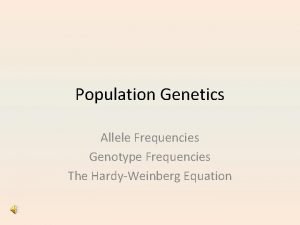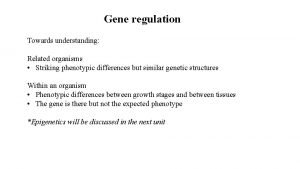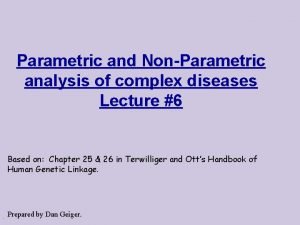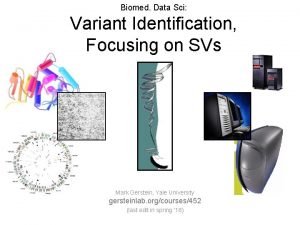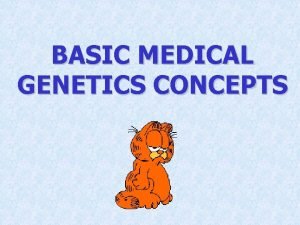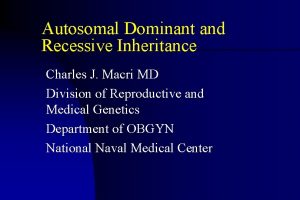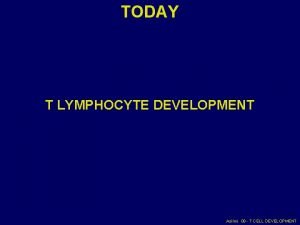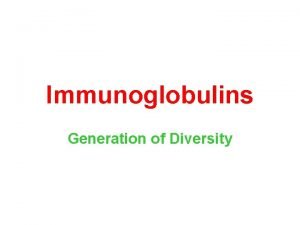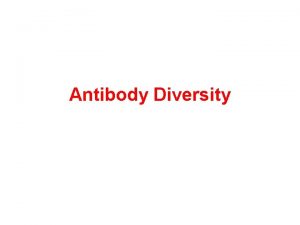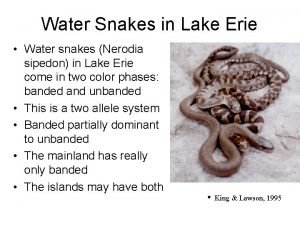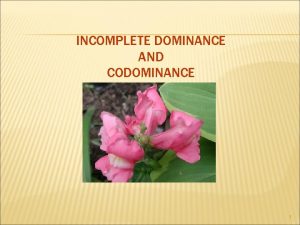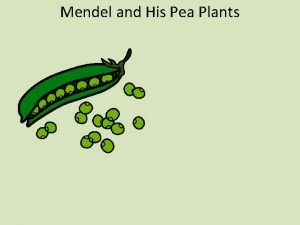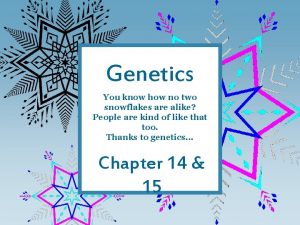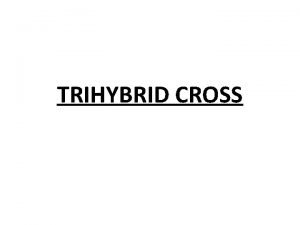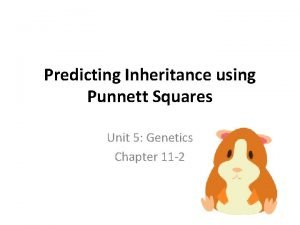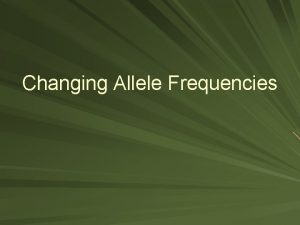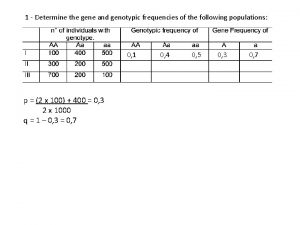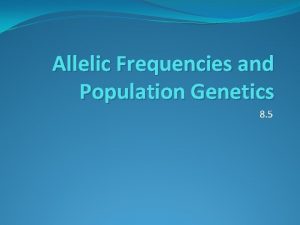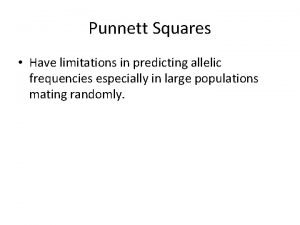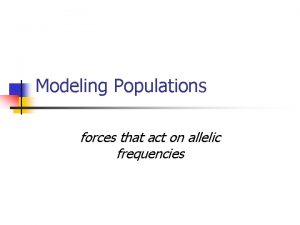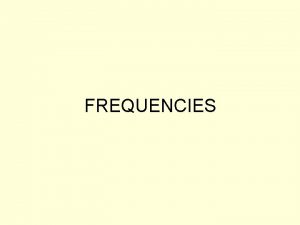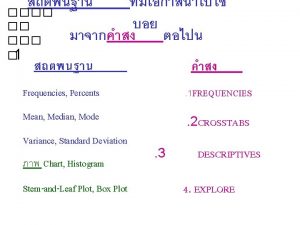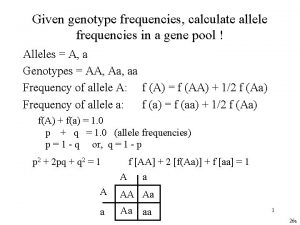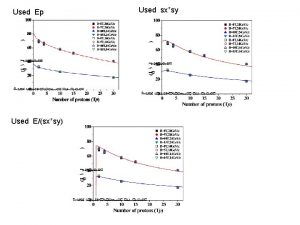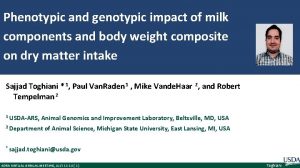25 1 Genotypic and Allelic Frequencies Are Used
















- Slides: 16

25. 1 Genotypic and Allelic Frequencies Are Used to Describe the Gene Pool Of a Population • Calculating genotypic frequencies • F = No. AA individuals/N • N: total no. of individuals • F: frequency of AA alleles. • Calculating allelic frequencies • Frquency of an allele = No. copies of the alleles/No. copies of alleles at the locus in a population.

25. 2 The Hardy-Winberg Law Describes the Effect of Reproduction on Genotypic and Allelic Frequencies • Hardy-Weinberg Law • Assumption: population is large, randomly mating, not affected by mutation, migration, or natural selection. • Prediction 1: the allelic frequencies of a population do not change. • Prediction 2: the genotypic frquencies stabilize.

Genotypic frequencies at H-W equilibrium • p+q=1 • p 2 + 2 pg + q 2 = 1 • P 2: homozygous dominant allele pair frequency. • Q 2 : homozygous recessive allele pair frequency. • 2 pq: heterozygous allele frequency.


Concept Check 1 What is the expected frequency of heterozygotes in a population with allelic frequency X and Y that is in H-W? a. b. c. d. X+Y XY 2 XY (X- Y)2

Concept Check 1 What is the expected frequency of heterozygotes in a population with allelic frequency X and Y that is in H-W? a. b. c. d. X+Y XY 2 XY (X- Y)2

25. 3 Nonrandom Mating Affects the Genotypic Frequencies of a Population • Positive assortative mating: • a tendency of like individuals to mate. • Negative assortative mating: • A tendency of unlike individuals to mate.

Inbreeding • Increases frequency of homozygotes in population • Rate is affected by how closely related mating pairs are



Concept Check 2 What is the effect of outcrossing on a population? a. b. c. d. Allelic frequency changes in the population. More heterozygotes will be produced in the population. Fewer heterozygotes will be produced. It will reach the H-W equilibrium

Concept Check 2 What is the effect of outcrossing on a population? a. b. c. d. Allelic frequency changes in the population. More heterozygotes will be produced in the population. Fewer heterozygotes will be produced. It will reach the H-W equilibrium

25. 4 Several Evolutionary Forces Potentially Cause Changes in Allelic Frequencies • Mutation • Migration • Genetic Drift • Founder effect • Genetic bottle neck • Natural selection



 Genotype vs allele frequency
Genotype vs allele frequency Lethal gene
Lethal gene Mendelian slicer
Mendelian slicer Mikael ferm
Mikael ferm Allelic heterogeneity
Allelic heterogeneity Non-allelic homologous recombination
Non-allelic homologous recombination Allelic heterogeneity
Allelic heterogeneity Allelic heterogeneity
Allelic heterogeneity Allelic exclusion
Allelic exclusion Genetica
Genetica Allelic exclusion
Allelic exclusion Heterogosity
Heterogosity Phenotypic ratio of dihybrid cross
Phenotypic ratio of dihybrid cross Phenotype of a pea plant
Phenotype of a pea plant Phenotype ratio
Phenotype ratio Dihibrid cross
Dihibrid cross Homozygous letters
Homozygous letters
